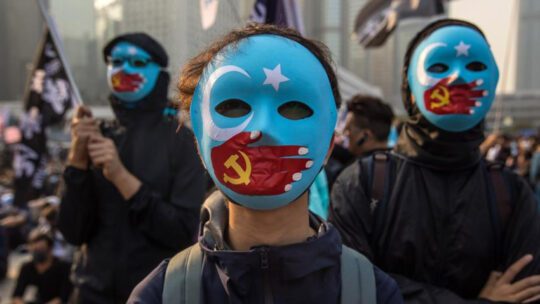
There are several variations on a quote from the boxer Joe Lewis: “You can run, but you can’t hide.”
In the 2001 film “Ocean’s 11,” it’s the ubiquitous cameras that overtake privacy. As casino owner Terry Benedict (Andy Garcia) tells girlfriend Tess (Julia Roberts), “In my hotel, there’s always someone watching.”
Indeed, this is a recurring theme of PR; details matter because someone always is watching. Deny this maxim and you’ll pay, sometimes with a full-blown PR crisis.
That someone’s always watching has never been more apparent than in the social media era. For instance, posts written as a teen can cause trouble years later.
And you’ve heard of sites that track corporate jets, right? The hope is location information will offer clues about what the companies and its CEOs are doing.
Of course, some C-suites are retaliating. Bloomberg reports that billionaire Bernard Arnault, LVMH’s CEO, rents private planes. He’s tired of people following him on the LVMH aircraft.
Data? What data?
Another entity hoping it can elude eyes is China.
The world’s second-largest economy is reeling. A combination of falling property values and pandemic-related shutdowns are the leading culprits.
So, Chinese officials decided they’d eschew releasing critical economic information today (Oct. 18). More than that, they decided to do so during the 20th Communist Party Congress, a huge, once-every-five-year event. Nobody will know the difference, right?
Wrong.
China watchers were, er, watching. In the west, at least, media coverage concentrated on the missing data.
“I’ve not come across before a situation where a whole raft of statistical reporting has just been postponed, in nearly half a century of monitoring data releases—not even in times of pestilence and conflict,” Oxford University China specialist George Magnus told the NY Times.
Causing even more of a hubbub, China committed another grave PR error. It offered no explanation for missing the expected data drop. For Jenny Wang, SVP, at Clyde Group, it’s likely Beijing “decided to take the PR hit instead of releasing awful news.”
Speculation is born
As in crisis PR, when an organization goes quiet, as China did today, others happily create the narrative. Accordingly, economists speculated China’s situation possibly is worse than first thought.
“The fact that they don’t even release the numbers means that the numbers are so pessimistic that it’s hard for them to even massage it into a slightly positive number,” Victor Shih, a China expert at University of CA, San Diego, told the Times.
Of course, China’s authoritarian system provides it leaders with a PR luxury. It's dangerous to dissent. As such, China's court of public opinion usually plays only a minor role in things. Few voice opinions, fewer protest. This affords Beijing much wiggle room.
On the other hand, your company isn’t China. Most of the time, bad news remains hidden for just so long.
“Some companies and CEOs operate as if they can maintain privacy," Wang says. "In truth, anything can be exposed.”
Update, Oct. 24, 2022: China released its IIIQ economic data today, nearly one week late. GDP grew 3.9% year over year, which was not too bad, though it was less than the 5.5% target, China's lowest in three decades. The financials, Xi Jinping's historic 3rd term as leader and his packing of the party with cronies combined to whack Chinese stocks. Investors worry Xi's increased authority–the removal of his predecessor from the Party Congress Oct. 22 was breathtaking–makes business in China risky.
